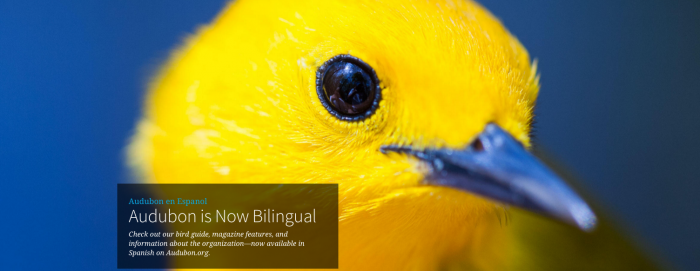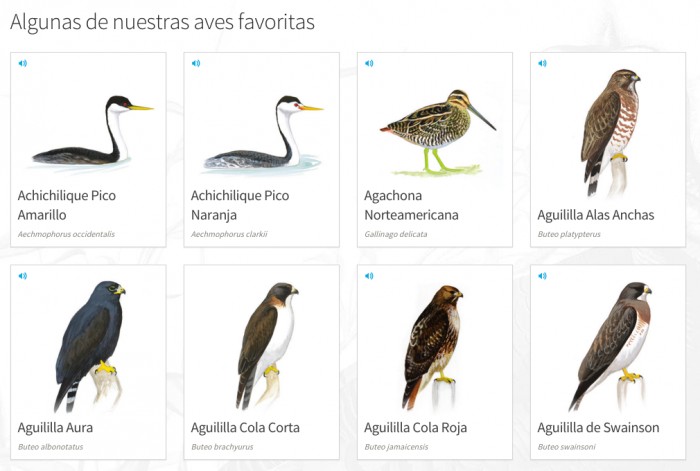
There are bird nerds all over the world, and they don’t all speak English. With that in mind, the National Audubon Society is expanding its offerings online: for the first time in the organization’s history, it’s translating into Spanish many of the web-only stories on the main Audubon.org site as well as the entirety of its flagship bimonthly magazine. It’s also making available in Spanish one of its cornerstone field guides on North American birds.

The historic conservation society website sees 2 to 2.5 million visitors in a given quarter. Without a Spanish-language component, the society’s membership makeup is, not surprisingly, skewed white. But it’s been trying to change things.
“With a growing Spanish-speaking population here, the Latino audience is something the organization has been looking at for a long time,” the Society’s chief marketing officer Jose Carbonell said, citing surveys that found that Hispanic voters were overwhelmingly pro-conservation and concerned about the tangible consequences of climate change. “Here’s this audience that is really passionate about the environment and about wildlife, and then when you look at the stats and see how many people also speak Spanish at home — these are even bigger numbers of people who could share our passion and mission. Over a year ago, we recognized that for the content we’ve been producing for so long, if we were able to translate it into Spanish, what the implications could be.”
(Birding itself may seem a niche interest, but Audubon also publishes serious, deeply reported investigations such as a look into how Shell leaned on the U.S. Department of Interior as the company tried to expand drilling in the Arctic.)
Nearly 36 million people speak Spanish at home in the U.S., according to Pew’s analysis of census data. About 80 percent of the birds listed in the Audubon field guide can also be found in Latin America and the Caribbean.Given the presence of these bird species outside the U.S., Audubon also decided also to translate its field guide online:
“We realized, if you’re a Spanish speaker and wanted to look up birds in Spanish, there was really nowhere online to go and search for that information,” said Carbonell, who helped shepherd the creation of Audubon en Español.
Translations were done through an organization called Trusted Translation. The group follows a rigorous process of vetting that includes multiple native speakers but also industry experts (“You may know Spanish, but you may not know birds, and a lot of these birds are not typical words that any native speaker would know,” Carbonell pointed out.) The initiative is entirely funded by Audubon.
For now, stories on the Spanish edition of the site are just translations, though original Spanish-language reported stories could be a possibility down the line. And Audubon will continue to expand the number of web stories that are translated.
“We’ll be pushing this on our social media channels, through paid search. For the people who are looking for that information and going to Google, we want to be front and center, and make sure it’s easy to find us,” Carbonell said.